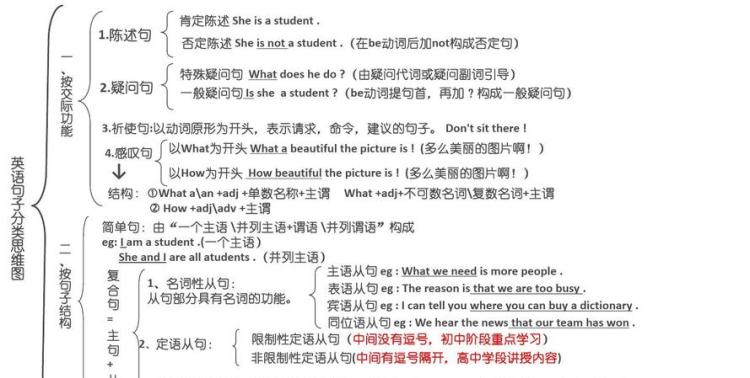主从复合句是英语中常见的句型,由主句和一个或多个从句组成。常见的表示方式包括使用连接词(如that, if, because等)、疑问词、不定式和动名词。需要注意的是,从句通常放在主句之后,且从句的语序要遵循英语的语法规则。

英语中,主从复合句的表示方式有很多种,常见的包括:
1. 连接词
连接词是主从复合句中最常见的表示方式。常用的连接词包括:
- that
- if
- whether
- because
- since
- as
- although
- though
- while
- when
- where
- who
- whom
- whose
- which
- what
例如:
- I think {that} he is a good student.
- {If} it rains tomorrow, we will stay at home.
- I don't know {whether} he will come or not.
- He didn't come {because} he was sick.
- {Since} you are here, let's start the meeting.
- {As} I expected, he failed the exam.
- {Although/Though} it was raining, we went out.
- We had a great time {while} we were on vacation.
- {When} I saw him, he was reading a book.
- This is the place {where} we met for the first time.
- The man {who} is standing over there is my boss.
- The girl {whom} I met yesterday is very nice.
- The car {whose} owner is my friend was stolen.
- This is the book {which} I borrowed from the library.
- I don't know {what} he is talking about.
2. 疑问词
疑问词也常被用来引导从句,例如:
- {Who} is your English teacher?
- {What} do you want to do tonight?
- {When} did you arrive in Beijing?
- {Where} did you buy this shirt?
- {Why} are you crying?
3. 不定式和动名词
不定式和动名词也可以引导从句,例如:
- My goal is {to learn} English well.
- I enjoy {watching} movies in my free time.
- {Reading} books is good for your brain.
在使用主从复合句时,需要注意从句的位置和语序。从句通常放在主句之后,而且从句的语序要遵循英语的语法规则。

